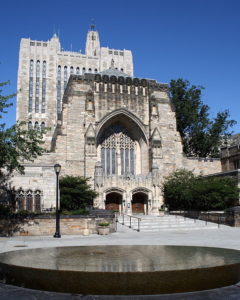
As college applications season draws to a close, one topic on many graduating high school seniors’ minds is whether to apply early. Many wonder whether there are advantages to moving quickly, and what early college admissions does. For those interested in understanding these policies further, the economic way of thinking may help explain how this phenomenon works, and the incentives faced by both colleges and students.
Unlike regular admissions policies which involve (hopefully!) getting accepted to a variety of schools and being able to assess and negotiate financial aid packages, early decision, if accepted, creates a situation where universities can act like discriminating monopolists with a price cap. Through financial records, which you’re required to submit, universities can estimate what you’re likely willing to pay in order to attend college. Since early decision is often binding, there are few close substitutes, and colleges are able to charge higher prices than would have been able to occur in a competitive market. In a sense, this moves tuition prices to an asymmetric market where options become more limited.

Why then do so many students and their families choose to participate in a market that’s tilted against them? The main benefit is that going to an elite college is desirable and is a way of distinguishing yourself from someone who went to a less prestigious college. For instance, the average early career salary of a Yale Alumni, $81,900 is much higher than that of a University of Connecticut alumni at $66,500. This also doesn’t account for the higher social status and access to education with more engaged students. All-in-all, going to an elite college is a valuable privilege. If sending a signal that one is willing to pay more is the price, many parents are willing to accept the tradeoff.
Elite colleges benefit even more from the creation of early decision. By offering it, they are able to screen for more motivated, more committed students who are also more likely to be able to pay. Since early decision usually involves applying significantly before the regular deadline, it selects for those who are prepared early. Furthermore, those willing to sacrifice choice sends a message that these students are going to increase the school’s yield, which further increases a school’s ranking. This method also selects for reasonably affluent families. Families who are willing to enter a market tilted against them probably have more resources to spare than a family that can’t afford to make such a commitment. This combination of factors provides a major set of benefits to colleges, meaning that they’re likely going to keep this system in place.
However, the use of early admissions is not good for everyone. Those concerned with socioeconomic diversity and meritocracy may see problems with this two-tiered system. Making processes more complicated tends to favor those with more resources. Adding more complexity to admissions can create situations that favor the wealthy, who can afford to hire experts who understand the system. This trend is mirrored in acceptance rates and test-scores. A study from the National Bureau of Economic Research by Christopher Avery and Jonathan D. Levin finds that early-decision policies increase the likelihood of acceptance by 20 to 30 percent, which is roughly equivalent to 100 points on the SAT. This finding suggests that such a process goes against meritocratic ideals and favors the wealthy, betraying concerns about fairness.
The early admissions tradeoff is somewhat straightforward and understandable. Making sure bills are paid, and that a college’s ranking stays intact are important goals, and colleges have a vested interest in maintaining their rank. However, using these policies may betray some fundamental ideals of the education system, such as levelling the playing field, helping the poor, and being meritocratic. If college admissions become more widely understood, colleges will have to decide which values guide their actions more explicitly.
This set of incentives being more widely understood by their consumers may influence the incentives of colleges. Voters concerned about a fair playing field may reign in processes seen as unfair through regulation if these policies are seen as objectionable.
Isadore Johnson is a campus free speech advocate, an economics and philosophy student, and regional coordinator for Students for Liberty.

READER COMMENTS
Jon Murphy
Apr 3 2022 at 8:34am
Very interesting post. I have a question: what percentage of an incoming class is early admission?
Comments are closed.